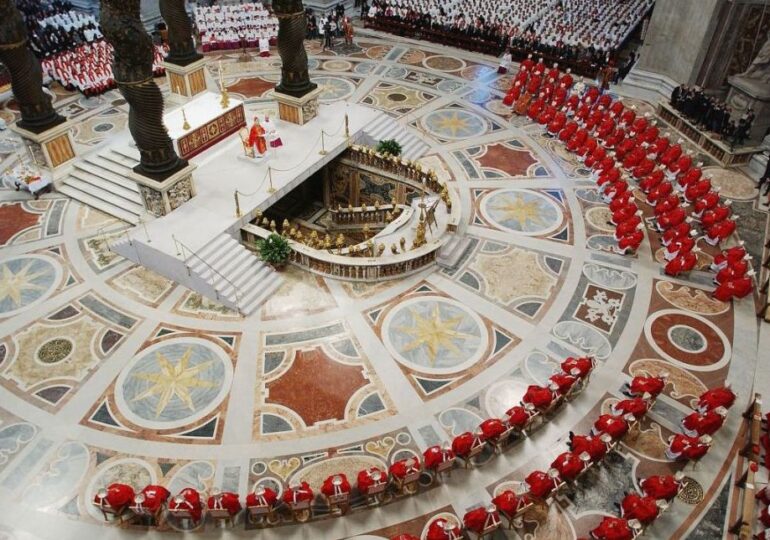An intense battle for the future of the Church, with huge stakes, will unfold in the coming days in the Sistine Chapel.
There are over 250 cardinals in total, but those over 80 years old are not allowed to participate in the conclave. Therefore, 135 eligible cardinals will begin to arrive in Rome in the coming days, writes The Guardian.
In his 12-year pontificate, Francis has appointed approximately 110 of these cardinals, bringing in selections from around the world. Some Vatican observers argue that he has "arranged" the conclave in favor of a successor who shares his vision and continues his work.
These appointments make it "difficult to choose an 'anti-Francis' pope," said Vatican journalist Iacopo Scaramuzzi, from the newspaper La Repubblica, author of the book Tango Vatican. The Church during Francis's time.
"But that doesn't mean this group is unanimous or coherent, or that they share the same ideas. Almost all the cardinals chosen by him are shepherds from large dioceses around the world." Among them are both conservatives and progressives, added Scaramuzzi.
For example, the German cardinal Gerhard Ludwig Müller, appointed by Francis, has had numerous conflicts with him, including criticizing the decree that allows the blessing of gay couples, which he called "heresy."
Francis, a different pope
From the moment of his election, Francis has stirred the anger of conservatives and traditionalists with a new style of papacy, a message centered on compassion and tolerance, but also a challenge to the secular privileges of the leadership of the Catholic Church.
In his public speeches, he has supported the cause of the poor and marginalized, criticized the effects of global capitalism on people's lives, called for action on the climate crisis, advocated for mercy towards sinners, and urged compassion for migrants and refugees.
In the Vatican, Francis has had a radically different presence. While previous popes wore red leather shoes and fur-trimmed mantles, he preferred ordinary footwear and a simple white cassock. While his predecessors lived in luxurious apartments, served by nuns, Francis chose the guesthouse Santa Marta and a self-service cafeteria.
The central figure of the conservative opposition during Francis's pontificate was actually his predecessor, Benedict XVI. Although he had promised to remain "hidden from the world" after resigning in 2013 – the first pope to do so in 600 years – he remained in the Vatican, gave interviews, wrote books and articles, and frequently expressed opinions contrary to Francis.
But strong opposition to Francis did not disappear even after Benedict's death on the eve of New Year 2022, nor after the death, just 10 days later, of the influential cardinal George Pell, who called Francis's papacy "a catastrophe" in a memo published under a pseudonym.
The target of critics
Francis has occasionally made sharp references to his critics. In his autobiography Hope, published in January, he noted that a clue to their state of mind is reflected in the ostentatious way they dress. "These ways of flaunting themselves sometimes hide a mental imbalance, an emotional deviation, behavioral difficulties, a personal problem that can be exploited," wrote Francis.
Conservatives have been deeply disturbed by the Church's softening stance on divorced and remarried Catholics, allowing some of them access to communion. The move has infuriated those who consider divorce a sin and prompted a group of conservative clerics to accuse Francis of heresy.
This accusation of heresy was reiterated in a 20-page open letter, signed in 2019 by prominent priests and academics, in response to "the increasing damage caused by the words and actions of Pope Francis over the years, which have generated one of the most serious crises in the history of the Catholic Church."
One of his most vehement critics is the American cardinal Raymond Burke, known for his opposition to the pope's positions on LGBTQ+ rights and social justice issues. Burke, close to Donald Trump's views, was marginalized by Francis, who left him without a salary and without Vatican-subsidized housing. However, Burke remains popular among conservative American Catholics.
Cardinal Robert Sarah became another notable opponent in January 2020 when he published a book – apparently co-authored with Benedict – defending clerical celibacy just as Francis was considering relaxing the rule. The cardinal from Guinea also criticized Islam, migration, gay people, and the role of women.
Several factors will influence the outcome of the conclave, especially the global political context.
"Trump, China, nationalists... all of these are variables that will matter in some way. There may also be a desire for someone more orderly, less charismatic than Francis. There are many aspects that can weigh in the vote, which can tip the balance either towards a progressive or conservative choice," said Scaramuzzi.

